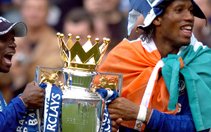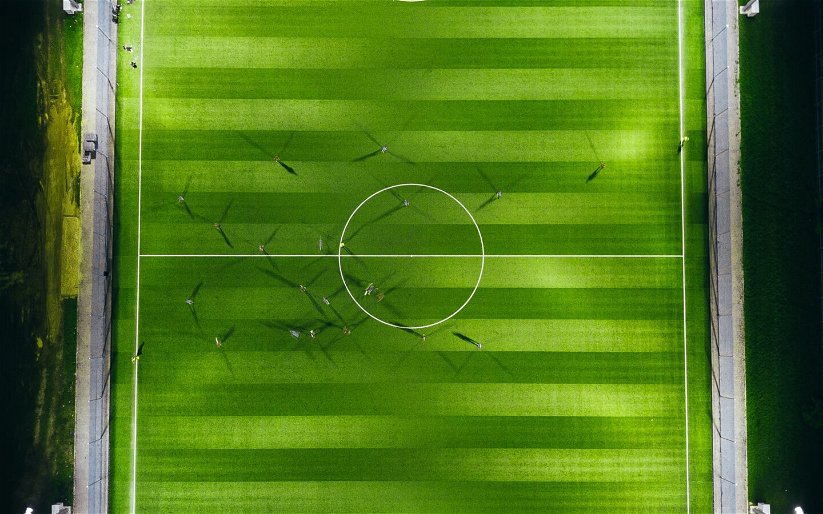Vital Queens Park Rangers regular JoodyQPR is currently over in the sub-continent covering the Africa Cup of Nations football tournament.
Tom is a professional journalist working exclusively for the African TV companies and writes various columns for the national African press.
Tom kindly sent the following report exclusively for this sites readers.
Super Eagles or Super ‘Chickens’?
Listen to the Nigerian fans here in Ghana after the dismal 0-0 against fellow West African’s Mali and you’d be forgiven if you believed Nigeria were already out of the tournament. Roll the clock forward four days later and the same fans will tell you they were never worried.
As an Englishman, I have always believed that the common English fan must be the most fickle in the world. The Nigerian’s are certainly putting this synopsis to the test. Thanks mainly to a solid performance from Cote D’Ivoire and a dismal one from Mali who, in truth, threw away their place in the last eight, Nigeria have made the Quarter finals of African Cup of Nations.
It staves off immense embarrassment for not only the team, but more importantly, manager Bert Vogts who would have been the first manager not to lead the Super Eagles to the semi-finals in over 20 years. Indeed before the defeat of minnows Benin, many were dubbing the team the ‘Super Chickens,’ and thousands if not millions across Nigeria were sharpening their claws.
If Nigeria hadn’t of qualified it was of continued a terrible run of results over the past 10 years. Impressively they reached the last 16 at France ’98 but failed to qualify from a tough group in 2002 and even worse, didn’t make the finals at all in 2006. They have not won the Cup of nations since 1994, despite making every semi-final since and for the largest populated country in Africa with over 140 million people, many saw this year as their chance to put things right.
So what has gone wrong since 1996 where an Olympics Gold medal was touted as a watershed for not only Nigerian football but for African football in general? In this period, Nigeria not only qualified for their first World Cup finals but made the second round, where Roberto Baggio had to score in the 89th minute and extra time to put the Nigerians out.
Earlier in the year they had already won the African Nations for the second time and the Olympic win two years later meant many declared Nigeria as the first African super power. The reality has told a different story.
Ask any Nigerian the reasons for this decline and they will all tell you something different. Six years ago, many would of told you they lacked solidity and on a world stage didn`t have the defence or goalkeeper to keep up with the leading national teams. In this tournament, their defence has been near impenetrable, conceding only one goal and stopping the likes of Didier Drogba and Frederic Kanoute, African player of the year candidates, from having any real effect.
The problem now is their lack of creativity further up the pitch. The likes of Finidi George and Jay-Jay Okocha, so good they named him twice, have been and gone and Nigeria are left with only potential talent, not the finished article as they have come to expect. John Obi Mikel could become a great, Yakubu and Martins whilst on their day are breathtaking, on others are shocking and whilst John Utaka and Odemwingie represent Nigeria’s future they have both disappointed in the early stages of the tournament.
Many are saying Vogts has taken the African-ness out of the countries best players. Vogts has said that ‘If football in Nigeria was organised as in Germany, the team would be unbeatable. Even Brazil would have to watch out.’
Whilst this statement exemplifies the team’s internal problems, some which I will discuss later, it also indicates Vogts main aim?to re-organise Nigerian football. By doing this, has Vogts forgotten what made Nigerian football so fantastic to watch in the mid-nineties?
It seemed before the tournament, Vogts was swimming in riches but he has been unable to find the right formula on the pitch. Mikel has played throughout the midfield including the right wing against Cote D’Ivoire and as an incredibly deep holding midfielder against Mali.
It seems Vogts still has no idea where best to employ the Chelsea man. Vogts seemed to finally solve his problems out wide against Benin, as Odemwingie and John Utaka, with help from the marauding Taiwo, showed real quality out wide. He hasn’t solved the problem, however, of how best to replace captain and talisman Kanu. Kanu is not the footballer he once was, but Nigeria have struggled to replace his leadership qualities.
Whilst individually, there is no doubt this group of players are gifted, they have the age-old problem of not being able to play as a team. Many say it is due to a lack of balance and organisation, which should come from the manager, especially one who in the past has been known for his organisational abilities. Others say the problem is far larger.
With the Nigerian team gaining constant attention, in Africa and abroad, many players have been accused of arrogance and being a bunch of Prima Donna’s. On the pitch this theory can certainly be proven, with players constantly taking the selfish option.
A long-range shot or ridiculous piece of skill instead of the simple ball. It seems a lot of the Nigerian team are solely out for personal glory. Watch a team like Arsenal and you rarely see a goal being scored from outside the box. Instead, they prefer to pass and move with glorious results. If only the Nigerian players could take a leaf out of Arsene Wenger’s book.
The problems however do not end on the pitch. Whilst their team lack balance and structure, behind the scenes, things get worse. Vogts’ indication that Nigeria would be as good as Brazil if organised properly, emanates here. The Nigerian embarrassment of riches has once again proved an embarrassment, with money, power and vested interests pushing their talented players through a rabid media with little thought of organisation.
Vogts has said in the past that, so frustrated by the constant chaos surrounding his squad, he has been near to quitting. Certainly, with so many punters, as well as parliamentarians, wanting to rub shoulders with the team, Nigerian football can certainly be seen as over-crowded.
Add to this, Nigeria’s constant threat of internal combustibility (Nigeria come to this tournament on the back of another pay row, a problem that a number of the 12 coaches that have managed Nigeria over the past 15 years have encountered) and you can see Vogts’ problems.
Whilst his ability to substitute self-expression for structure is certainly a theory that can work off the pitch, the results on the pitch have not been forth coming as Vogt’s plan to take the African-ness out of Nigeria has failed dramatically.
Whilst it may of worked for Brazil in 1994, an understanding of African football, culture and their fans point to the reasons why it hasn’t worked for Nigeria in 2008.
In Europe, a crunching tackle or industrious defensive 1-0 win is regarded as highly as a wonderful bit of skill or an attackingly destructive 4-0 triumph. That is not the case in Africa. Just ask the Ghanaian team who, despite winning all three of their group games and only conceding one goal, have still been the subject of criticism from many of their supporters due to their lack of creativity and entertainment.
It seem that whatever happens to the Nigerian team during the rest of this tournament, they will still be ridden with the same problems that has dogged them for 12 years. Vogts will undoubtedly be replaced, probably by another European who will once again fail to keep a balance between performances and results.
For now the Nigerian rabble are happy and will continue to be so until their next loss where they will again turn on the players, the coach or anyone that dares step in their path.
In the meantime, all we can do is look forward to Sunday where the Accra sports stadium will be the host to maybe the biggest game in African football. Let’s just hope the game is played in traditional African style, with a freedom of expression that sits at the heart of African football.
Exclusive African Cup Report

Share this article
